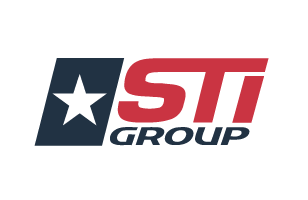It is to be expected that various businesses and companies need to meet certain standards of quality in order to operate and provide products and services to the public. Without these precise guidelines in place, any number of problems can arise. Over time, business practices and other factors change, and as a result, the standards of quality that have to be met need to be altered. API Spec Q1 and ISO 9000 were developed to outline the standards that must be met in order for a business that deals in natural gas and oil to operate.
What is API Spec Q1?
API stands for American Petroleum Institute, and it creates the specifications for the natural gas and oil industry within the United States. It is very important for businesses to meet API standards because failure to comply could result in additional costs and a poor public image. API qualifications are specifically developed for natural gas and oil businesses, and there is a large focus on risk management and risk assessment. The newest version of these guidelines was issued in 2013, and it includes over 85 new clauses and five extra sections. One of the newest qualifications that companies must abide by is that contingency plans must be included in your formal quality management proposal in order for the company to gain proper certification.
What is ISO 9000?
While API Spec Q1 guidelines are specifically designed for the oil industry, ISO 9000 guidelines are developed as broad standards for the general manufacturing industry in its entirety. Most industries need to meet ISO 9000 specifications in order to meet the demands of their own personal quality management systems. Failure to meet ISO 9000 guidelines generally result in higher operating costs and can make managing a business much more difficult. Some of the principles that are emphasized in this system include standards for customer service, process approach, systematic approach to management, continuing improvement for the company’s performance as a whole, leadership capabilities and a mutually beneficial relationship between the supplier and the company.
Main Differences Between API Spec Q1 and ISO 9000
Ultimately, the end results for both quality management systems are the same. They both exist in order to provide a higher quality of service to the general public and to ensure that businesses carry out the safest and most efficient policies possible. However, there are some key differences between the two systems that should be noted.
- Maintenance performed for preventative purposes
- Contingency planning
- Control within the supply chain
- Formal approach to the training of employees and personnel competency
- Emphasis of risk management and risk assessment throughout the company
- Management of change
- Validating designs before production
There is one main point where API Spec Q1 and ISO 9000 deviate. API Spec Q1 focuses on a process-and-risk management approach to how businesses need to operate while ISO 9000 focuses on a process management approach. Although this may seem like a small difference, it can have a huge impact on how businesses formally document their process approaches.
ISO 9000 places less emphasis on risk management and instead concentrates on regulatory filings, training certification, quality reports and formal work instructions. API Spec Q1 requires companies to include risk assessments in addition to the rest of this documentation. As a result, if a business does not pass the standards set forth by ISO 9000, there is a very good chance it will also not pass the guidelines created by API Spec Q1, making it very difficult to carry out the day-to-day operations of the organization.
Setting a High Bar for Excellence
By having two systems in place that dictate the practices companies need to follow, it is ensured that businesses will do their best to comply with both guidelines. The overarching standard that ISO 9000 sets forth is for businesses to be competent as far as documentation control. This guarantees that protocols are in place for any number of issues that may come up within a company.
With its focus on risk management, API Spec Q1 makes it official that natural gas and oil companies will have documentation in place in the event of an unforeseen incident. Companies that meet API Spec Q1 guidelines are in a better position to deal with the unexpected so that there is a safer work environment for employees and anyone else involved with the organization. The systems work together to promote the best working atmosphere possible.
The Benefit of Two Systems
Although having two different sets of guidelines for natural gas and oil companies to adhere to may seem like it would get confusing, the two systems actually work together to ensure a more productive outcome. Both API Spec Q1 and ISO 9000 ensure that the proper documentation has been developed and is in place in the event of certain proceedings. A quality management professional will be in charge of seeing that both guidelines are met, and if they are, the company will enjoy improved productivity and higher standards of quality. STI Group is proud to offer a quality program with continuous quality assessment enforced, based upon the API Spec Q1. Implementation of lean manufacturing and six sigma principles are our day to day process ensuring products of quality with cost effective saving to our clients.

